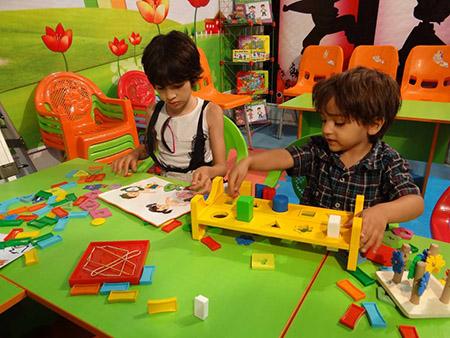
According to the World Bank, ECD refers to the physical, cognitive, linguistic, and socio-emotional development of a child from the prenatal stage up to age eight. This development happens in a variety of settings (homes, schools, health facilities, community-based centers); and involves a wide range of activities from child care to nutrition to parent education. Providers of services can include public, private, and non-governmental agencies.
Welfare organization is implementing the pilot programs in Malard, Tehran province; Divandarreh, Kordestan province; and Zarand, Kerman province, IRNA quoted Anoushirvan Mohseni-Bandpey as saying on Tuesday.
Mohseni-Bandpey expressed hope that the Ministry of Education will execute the programs in the near future.
Once policy makers recognize the importance of health and education the way will be paved for social well-being of the citizens, he noted.
For one providing preschoolers with one hot meal in underprivileged provinces and outskirts of the cities which, according to the figures revealed by the Ministry of Health, have help in improving nutrient intake by 50 percent in those areas, he highlighted.
Why is ECD so important?
The World Bank states that early years of life are a window of opportunity to lay a strong foundation for a child’s life. Proper health, nutrition, and early stimulation play a critical role for brain development and child well-being. Around the world, poor children under five lag behind their more advantaged peers in physical, language, cognitive, and socio-emotional development. Without access to quality ECD, poor children often fall behind their more advantaged peers before they even begin school. As they get older, the gaps widen: they are likely to perform poorly in school, earn less as adults, and engage in risky social behaviors.
Therefore, supporting early childhood development improves equity improving the health, nutrition, and education outcomes of children. Research shows that ECD interventions benefit the poorest and most disadvantaged children the most even though these children currently are the least likely to have access to them. In addition, it is more difficult and more costly to intervene later in children’s lives.
Furthermore, ECD targeted to the most disadvantaged are a cost-effective strategy to promote children’s success in school and life. Children who participate in quality ECD programs are more ready to learn when they begin school and are less likely to repeat grades or drop-out of school, which reduces the overall costs of the education system. When they get older, they are more likely to earn more and less likely to engage in crime.
